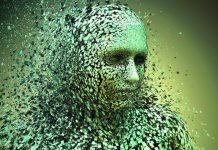The People’s Liberation Army (PLA) of the People’s Republic of China (PRC) will undergo a revitalization under Xi Jinping’s first year of his Five-Year plan. Xi Jinping’s earlier shakeups of the People’s Liberation Army included efforts to remove senior officials after accusations of selling military titles became rampant, to show Jinping’s commitment to anti-corruption measures. A second change in the revamp of the People’s Liberation Army, was to split the four departments of the Army into subsidiaries which manage more intricate happenings.
The mitigation of its power was to be ensured that these four departments – which together operate as a strong arm for the central Beijing government – would not undermine the authority of the Central Military Commission (CMC), which operates as civilian-led. Jinping has also began the process of instituting more western-styled operational command – in which the command that the People’s Liberation Army follows is based on democratic principles with greater input from senior military officials rather than strictly from Beijing’s tight rule. The leeway now given is a drastic change from the former Russian-based style of operating, wherein the focus is weaponry-centric instead of command-centric.
Detailing the changes in numbers, there is a large shift beginning to rear itself. For instance, of the 300 military delegates in the People Liberation Army, over 90% will be first-time delegates. Of these, almost 17% of the current military delegation will return and remain in their seats on the next Central Military Commission (CMC). After the reshuffling of the approximate seven of the forty-one military representatives which will continue to control full membership of the CMC, the state will have already seen its largest turnover of elites in the People’s Liberation Army since the foundation of the People’s Republic of China.
If nothing else, these changes set out by Xi Jinping’s first year of this current Five-Year plan, exemplifies the novel political trajectory, both the state and culture surrounding its institutions, will bring. This new trajectory is hoped by the Chinese state to better modernize and organize itself clearly, but it remains to be seen how this modernization will affect other facets of the Chinese state.

















